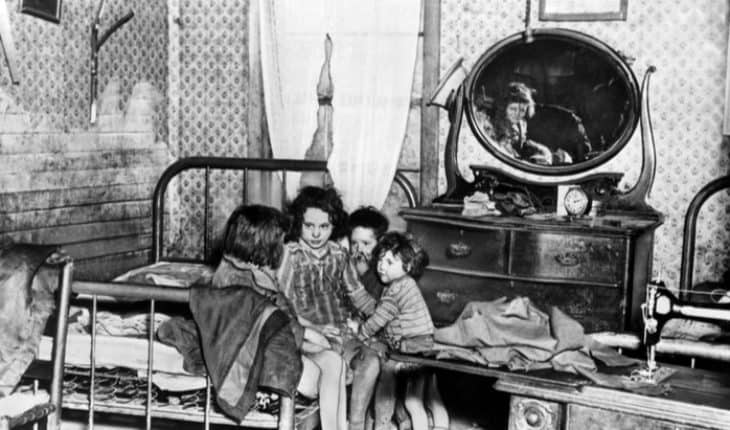A new exhibition ‘Aspects of Age’ opening this week at the Royal College of Nursing reflects how the way we care for older people has changed, over two centuries, shifting from institutional to home care, from the workhouse and asylums of the Victorian era to the hospital and care home and beyond. Dawne Garrett, RCN Professional Lead for Care of Older People and Dementia comments: “The way we care for older people in society has been transformed over the last 200 years.
From the dark days of the Victorian workhouse to the modern healthcare we have today, the lives of older people have genuinely changed. Older people today enjoy active lives that would have seemed unimaginable even fifty years ago. “Our exhibition takes people through these developments and gives a true flavour of the way we care for older people today. Hopefully it will help inspire even better care in the future.”
At a ‘history of ageing’ Forum, opening the exhibition, Pat Thane Research Professor in Contemporary British History said: “Nowadays many people remain fitter and more active than ever before. Older people in England have preferred to keep mobile for as long as they can.” As life expectancy has increased, so too have our opportunities to do more for longer; today many people travel, engage in sport, find new relationships, volunteer for charities and more well into their eighties and beyond.
Professor Thane continued: “Until the Second World War a high proportion of people didn’t marry and didn’t have children, so had no children to care for them when they reached old age. And for many centuries before industrialisation younger people migrated in search of work and were unavailable to care for their parents. From the mid twentieth century marriage rates, and also birth rates rose. As a result, there are now many retired people in their sixties caring for their parents in their eighties, or older. It’s not all plain sailing. Tensions can arise when families share their homes. In Japan it is normal for older people to live with their families but there is a high level of abuse of elders. There has been little research on this in the UK, but we know about child abuse, so we shouldn’t be surprised that elder abuse also occurs within families. Another problem in the twentieth century is that adult children are often too poor to help their parents. The demands on adult children are greater as more people live for longer.”
“What happened to those elderly people who didn’t receive family care in the past?” asked Professor Thane, before going on to explain the bleak reality. “The last resort was the workhouse providing grim, basic care before the First World War. At that time most residents lacked close relatives. If elder people were luckier they might enter a charitable institution. After the Second World War, in 1948, the same year as the NHS was introduced, local authorities were obliged to offer care for older people. There was no attempt at the integration of health and social services. Many hospitals given a choice would prefer younger, rather than older patients. And so the relative neglect continued. Families could do a lot but they couldn’t provide for real health needs, in particular for those relatives suffering from such conditions as Alzheimer’s or dementia. In 1962, a number of former workhouses were being used for care of the disabled, people with special needs and the elderly. Criticism of conditions led to improvements and the provision of community, rather than residential care – as it was cheaper than providing good residential care. These services continue to be provided around the country. During the economic crisis of the 1970s limited funding and public services were cut back and privatised during the following Thatcher era. There were some improvements under New Labour 1997-2010. In 1999 Labour recommended that all long-term social care should be free and this was adopted in Scotland. In 2010 Labour lost the general election and in the same year the House of Lords report was critical of the existing system.”
However there is still no integration of health and social care and people are living for longer than before, with hospitals reporting bed-blocking by elderly patients because there are no available places in local care homes they can be moved to. Dementia is now the biggest killer of men and not heart disease, or cancer. A recent survey reported that 1 in 7 people provide unpaid social care and women are twice as likely to provide this than men. And as more people live longer, more retired people in their sixties are caring for their parents in their eighties. And this saves public funds a great deal – around 34 billion pounds a year.
The new Royal College of Nursing’s new exhibition “Aspects of Age” aims to throw light on how attitudes towards ageing and care for the elderly has changed over history. Highlights in the show, on loan from the Royal Pharmaceutical Society museum include fascinating specimens of ‘sea skink’ from the late 18th century. These small lizards were believed to have aphrodisiac properties and were reported to ‘restore warmth in old age and decays of nature.’ There is also an original packet of Viagra from when it was first licensed in 1998.
Also on display are original Royal College of Nursing pamphlets on how to care for older people and how to set up a nursing home, an enamel bedpan and cup from 1914 on loan from the British Red Cross Museum and Archive, and a ‘certificate of character’ for a workhouse nurse from 1912. Improvements in the way older people are treated have led to increased life expectancy meaning today many older people continue to live full and engaging lives – travelling, playing sport, finding new relationships, volunteering in the community into their 80’s and beyond.
The exhibition also acknowledges that despite all the improvements and innovation things may still not be perfect for all and poses the question ‘in an ageing population, how much have we learned from the attitudes of the past?’
- Fenella Fielding – Onstage, Offstage - 3rd November 2025
- ‘Trains of Thought: A Natural History of the Mind’ Review - 12th September 2025
- People’s Choice Victory for Down’s Syndrome Scotland Garden at Chelsea 2025 - 28th May 2025







